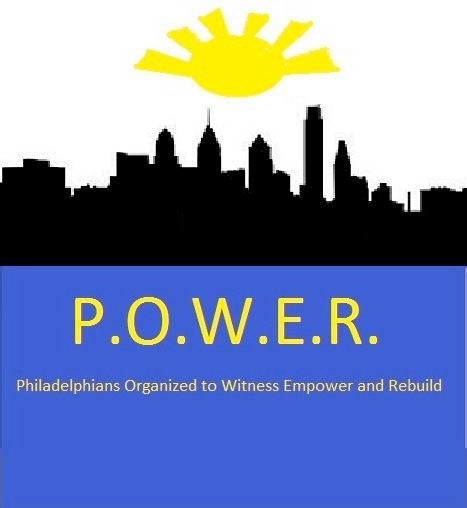POWER play: Interfaith group aims to help fix what ails Philly
It started in 2009 as a diverse group of 30 clergy leaders discussing “the pain in their neighborhoods and the brokenness of systems that are meant to serve those communities.”
This Sunday, POWER will begin making prayerful noise in a public way.
Organizers estimate 2,000 members from about 40 congregations across the city – churches, synagogues and mosques – will attend the “Founding Convention” of Philadelphians Organized to Witness, Empower & Rebuild (or POWER: An Interfaith Movement) on Sunday.
Members of POWER represent a number of Northwest Philadelphia neighborhoods: Chestnut Hill (Church of St. Martin in the Fields and Chestnut Hill UMC), East Mt. Airy (St. Therese Parish) Germantown/West Oak Lane (Second Baptist Church of Germantown, St. Benedict’s Parish, St. Vincent de Paul Parish), Roxborough (Mishkan Shalom Synagogue) and Cedarbrook (St. Raymond of Penafort Parish, Woodcrest UCC).
Rev. Jarrett Kerbel of Chestnut Hill’s Episcopal Church of St. Martin-in-the-Fields said the primary issues they plan to address are jobs/employment, education and public safety.
“It started with a lot of listening to people’s concerns, to bring voices that don’t always get heard to the table … to build an agenda and a community out of that,” said Rev. Kerbel, who serves on the group’s sponsoring committee. “As an individual church, we can only do so much, but together, we can actually achieve what we believe in.”
Culled from “more than 1,000 face-to-face conversations” with members and neighbors, POWER’s specific goals include higher high-school graduation and college-enrollment rates, better job training and job access for low-income residents, increased opportunities for ex-offenders, reduced gun violence, and better management of vacant lands.
The founding congregations want to create and pursue a “comprehensive jobs plan” designed to find 10,000 new jobs for Philadelphians by 2016.
The Rev. George Moore, who heads St. Benedict’s Catholic Parish in Germantown, said it was the city’s troubling job market and education system that drew him towards POWER.
Father Moore hopes the organization can be one that successfully pushes for public policy changes around those issues.
“There have been some initiatives here in the city before, but we’re hoping that this one will be one that is long-lasting and productive,” said Moore. “We’re in a position where we need as much help as we can get.”
Rabbi Linda Holtzman of Mishkan Shalom Synagogue said the effort mirrors her congregation’s rationale for moving into the city a decade ago. Drawing membership from across the city and suburbs, Mishkan Shalom wanted to help make the city a better place, much like the POWER initiative.
“This is a group of people that in many ways differs on social, political issues, and differs radically on theological issues. We’re different, but we care deeply about Philadelphia,” Holtzman said. “When coming at it from a faith-based perspective, we are ready to work together to push the mayor, City Council, entire city government to open their eyes to every possible way to make a difference.”
Sunday’s event – scheduled for 5:30 p.m. at Tindley Temple United Methodist Church, Broad and Fitzwater streets – is intended for POWER to publicly launch “a multi-year, five-part organizing campaign” and get commitments of support from public- and private-sector leaders.
“We’ve been working on this for a couple of years, so we’ll celebrate all that work,” said Kerbel, noting that Mayor Michael Nutter and other elected officials with whom they hope to maintain a dialogue are expected to attend.
In addition to financial support (via dues) from the congregations themselves, POWER is backed by the William Penn Foundation, Philadelphia Foundation, the Fels Fund, the Hilles Fund, the Bread & Roses Community Fund, the U.S. Conference of Catholic Bishops, the Presbyterian USA national office, and private donors.
“The diversity and range of people, every section of town, every face, a large number of churches and synagogues and mosques are bring their members, that makes this a hard force to ignore,” Holtzman said. “This kind of voice has not been so strong and clear in the past. With this group, I’m hopeful.”
WHYY is your source for fact-based, in-depth journalism and information. As a nonprofit organization, we rely on financial support from readers like you. Please give today.







